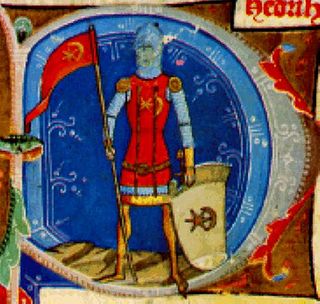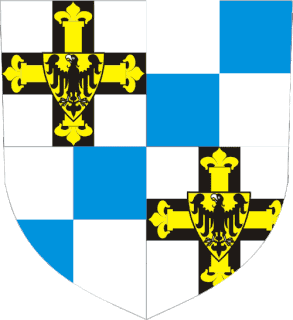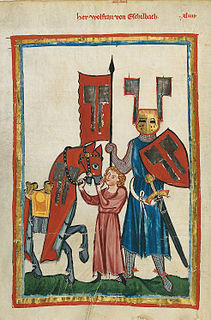 W
WHeinrich von Bülow also known as Big Top (Grotekop) was a knight born in the middle of the fourteenth century. He died either before 1395 or during 1415. He prospered as a warrior-supporter of Prince Albrecht of Mecklenburg. Outside Mecklenberg, Heinrich Grotekop is still remembered in many quarters as an archetypal robber baron on account of his appetite for feuding.
 W
WHans von Trotha was a German knight and marshal of the prince-elector of the Palatinate. He also bore the French honorary title of a Chevalier d’Or. In 1480, the elector enfeoffed him with the two castles of Berwartstein and Grafendahn which lay in the South Palatine part of the Wasgau region within the Palatinate Forest. In local folklore he is known as Hans Trapp or, more rarely, Hans Trott.
 W
WHéder, also Hedrich, Heindrich and Henry was a German knight possibly from the Duchy of Swabia, who, alongside his brother Wolfer, settled down in the Kingdom of Hungary and became a member of the Hungarian nobility. Héder was also eponymous co-founder of the powerful Héder clan and ancestor of the Hédervári family.
 W
WUlrich von Jungingen was the 26th Grand Master of the Teutonic Knights, serving from 1407 to 1410. His policy of confrontation with the Grand Duchy of Lithuania and the Kingdom of Poland would spark the Polish–Lithuanian–Teutonic War and lead to disaster for his Order, and his own death, at the Battle of Grunwald.
 W
WKunz von Kaufungen was a German knight and military commander. A veteran of the Hussite wars, he also fought for Frederick II, Elector of Saxony against Frederick's brother Duke William III during the Saxon Fratricidal War (1446–1451). Afterwards, Kunz was not repaid or recognized for his services and loss of property during the war, and eventually during the Prinzenraub he kidnapped Frederick II's two sons. He was caught and later executed.
 W
WTannhäuser was a German Minnesinger and poet. Historically, his biography is obscure beyond the poetry, which dates between 1245 and 1265.
 W
WUlrich von Liechtenstein was a German minnesinger and poet of the Middle Ages. He wrote poetry in Middle High German and was author of noted works about how knights and nobles may lead more virtuous lives. Ulrich was a member of a wealthy and influential ministerialis family from Liechtenstein in Styria. He was born about 1200 at Murau in the Duchy of Styria, located in the present-day country of Austria.
 W
WVecelin, also Vecellin and Vencellin, was a prominent military commander of Stephen I of Hungary at the end of the 10th and the beginning of the 11th century. He was of Bavarian origin and came from a city named as either Wasserburg or Weissenburg.
 W
WWolfram von Eschenbach was a German knight, poet and composer, regarded as one of the greatest epic poets of medieval German literature. As a Minnesinger, he also wrote lyric poetry.